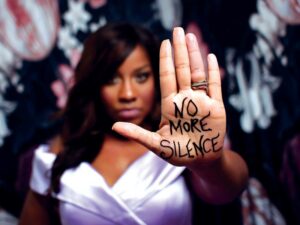“He’s teasing you because he likes you,” is a phrase we have all heard from grown ups after sharing our experiences on the playground with them. It’s usually meant to describe the moment when a member of the opposite sex would tease, push, or pull our hair, and this phrase is something that continues to be said to little girls.
The question is though, should this be something we are telling little girls? That someone likes her because he’s mean to her? When does it go too far? What could it ultimately lead to, if anything at all?
Teasing is Teasing
“It's best that we teach our girls and boys that teasing is teasing and bullying is bullying, no matter what the intentions may be of the child doing the teasing. Teasing of any kind, especially over a long period of time, ultimately leads to low self-esteem and confidence issues in the development of the child or teenager. Further down the line, destructive ‘acting out’ behaviors may present,” says Kelli L. Ewing, LPC, LLC.
When a child comes to you with a complaint about someone bullying him or her, you should not brush it off as a crush. Instead, you should teach the child that he or she deserves respect.
Ewing explains, “We should teach our children that they have the right to be respected; in that they should not be expected to ‘put up’ with anyone disrespecting their bodies. We should impress upon them the importance of using their words to express what they are feeling and to do so in the most honest way they can.”
Megan Kelly, a local mom, founder of Mompreneur Nation, and a domestic abuse survivor agrees, “Our oldest daughter will often tell us about a little boy being mean to her or pulling her curls! Maybe it is because he likes her, but that's an explanation; it is not an excuse. We try and teach our girls to speak up. If you don't like it, you don't have to take it! Tell a teacher or an adult. You don't have to accept a behavior, even those with the best explanation attached to it."
Saying, “He’s doing it because he likes you,” can create a dangerous mindset. Some girls (and even boys!) may then believe it’s true and that people show you they care in negative ways, or that it’s just the way relationships work. At its extreme, this type of mindset could lead them to accept abusive behavior later in life, or what we know as domestic abuse.
Domestic Abuse in Louisiana
The National Coalition Against Domestic Violence (NCADV) defines domestic abuse as “the willful intimidation, physical assault, battery, sexual assault, and/or other abusive behavior as part of a systematic pattern of power and control perpetrated by one intimate partner against another. It includes physical violence, sexual violence, threats, and emotional abuse. The frequency and severity of domestic violence can vary dramatically.”
In Louisiana, 81 percent of female homicides are committed by a partner or ex-partner, and Louisiana ranked fourth in the nation for femicide in 2010 with two-thirds of the murders being committed with guns, according to the analysis, America Under the Gun.
It should be noted that there are a variety of reasons that domestic violence happens; it doesn’t just stem from a phrase heard on the playground. Those who have survived domestic abuse could very well come from a different environment entirely.
Kelly shares, “I was blessed to be raised in a two-parent, loving, Christian home. My parents aren’t perfect, but they did a fabulous job raising us and demonstrating real love in marriage. I am the ultimate daddy’s girl. I’m thirty-whatever years old, and my Daddy will still goes to all of my dentist appointments. I don’t care if you judge me. I say this to say, I know how a woman should be treated.”
However, despite knowing how a woman should be treated and what a relationship should look like, abuse can still happen to anyone.
Kelly shares of her experience with her ex, “In my mind, this kind of thing would never happen to me. Somehow, I vividly remember waking up at home that morning only remembering a major fight the night before. He’d hit me in the head while I was in his car. I must’ve driven myself home that night. I have no recollection. That incident was at least two years before we eventually broke up,” she shares.
Staying Together
For those who aren’t in abusive relationships, they may question why people would stay with their abusers. There are a variety of reasons for why they stay, including that it could be an even more dangerous situation if they try to leave.
The study, Extent, Nature, and Consequences of Intimate Partner Violence, reports that, “Interviews with men who have killed their wives indicate that either threats of separation by their partner or actual separation are most often the precipitating events that lead to the murder.”
Another reason they choose to stay is because they feel that this is how relationships work, and it’s normal. Ewing explains, “For many people who were raised in dysfunctional homes or those individuals’ homes that slowly become dysfunctional, this environment becomes ‘the norm.’ Victims may learn to see abuse is 'just the way it is' in relationships and there might not be a better option for them out there. Their environments become normalized.”
NCADV shares the following reasons as other barriers preventing some from leaving abusive relationships:
- The fear that the abuser's actions will become more violent.
- Unsupportive friends and family.
- Knowledge of the difficulties of parenting alone.
- Reduced financial circumstances and fear of being able to provide for children.
- Fear of losing custody of any children.
- The victim's lack of knowledge of or access to safety and support
There is Hope
“I remember one of the final moments. We were at my parent’s house when another argument began. He went in the kitchen and came out with a large knife. All I could think was my Mom and my Daddy are going to come home and find their daughter lying in a pool of blood. What would that do to my siblings? That was the beginning of the end. Sadly, so many women don’t live to tell the tale. I want my life to be an example that it can happen to you, too. Most importantly, there is hope. You can get away and have a happily ever after,” Kelly shares.
Local Resources
There is local help available. If you or someone you know is in an abusive relationship, the following resources are here to help.
CAFVIC 24-Hour Domestic Violence Response Hotline
- (225) 389-3001 or (800) 541-9706
- stopdv.org
Louisiana & National Crisis Lines
- If you are a Louisiana resident in need of assistance, call the 24-hour toll-free crisis line at (888) 411-1333. If you are a youth, call the National Youth Dating Violence Crisis Line at (866) 331-9474.
The Butterfly Society
- (225) 347-7725
Battered Women's Shelter
- (225) 644-4916
EBRDA Domestic Violence Division
- (225) 389-4705
The National Domestic Violence Hotline
- (800) 799-7233
- (800) 787-3224
- thehotline.org
Allie’s Story
“I remember the first time he hit me. He was drinking and asked me to denounce my religion, and I told him no. We got into a fight and he made me get out of his truck and walk home. I cried in my mom’s lap. She called him and he told her I was being the b-word.
My mom told me if I knew what was good for me, I would break up with him. I thought that was so out of character for him because he had always been so nice and supportive, and this really came out of nowhere.
We started getting into fights because he was always talking to his ex-girlfriends. I wasn’t jealous, but I would tell him that if he cared about me, he would tell them to stop calling him. One day, we were arguing about it so bad that he had me on the bed and was strangling me. His friend, at the time, had to pull him off of me.“
To hear more survivor stories from the Mompreneurs Talk: Domestic Violence campaign, visit
mompreneurnation.com. ■





